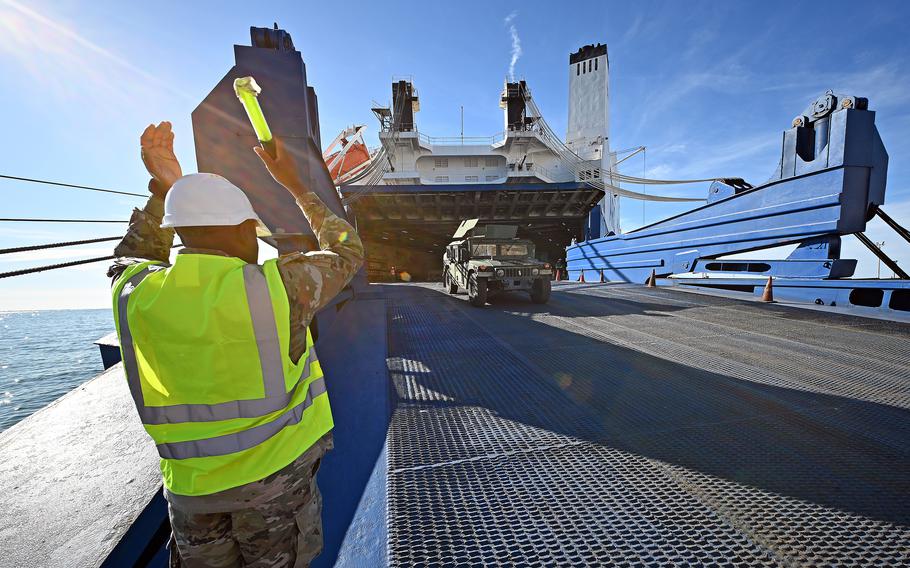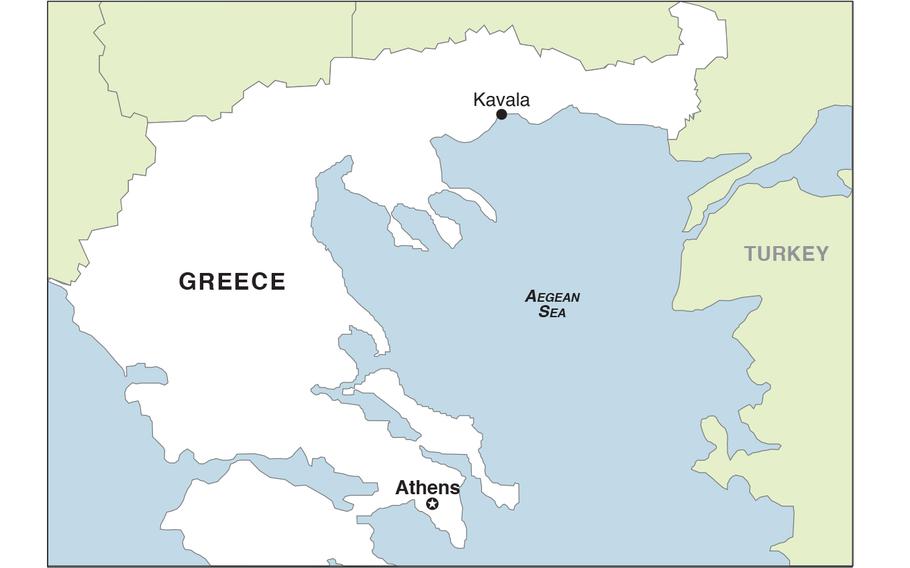
A soldier supporting the 839th Transportation Battalion directs a U.S. Army vehicle as it is offloaded from the cargo vessel ARC Endurance at the port of Kavala, Greece, April 29, 2025, for the exercise Defender 25. (Davide Dalla Massara/U.S. Army)
U.S. soldiers in Greece have gained new access to an eastern Mediterranean port, giving commanders another hub for projecting power on NATO’s southern flank, military officials say.
Units involved in the U.S. Army’s ongoing Defender 25 drills in Europe last week pushed vehicle convoys through a Greek commercial port at the Aegean Sea city of Kavala — marking the first time Army equipment was offloaded there.
“This port addition enables us to have many more options and opportunities should we need them for future missions here,” Brig. Gen. Karen Monday-Gresham, deputy commander of the 21st Theater Sustainment Command, said in a recent statement.
The Kavala port joins a growing network of sites used by U.S. forces across Europe. Greek authorities are expected to upgrade the port in the coming years with a rail terminal that could allow for larger force movements.
The U.S. Army and Air Force also have expanded missions in other parts of Greece in recent years, with a rotating presence at military sites in Stefanovikeio, the port of Alexandroupoli and Larissa Air Base.
Expanding port access has been a priority for U.S. European Command, particularly since Russia’s 2014 intervention in Ukraine.
Once reliant on northern hubs such as Bremerhaven, the Army has increasingly turned to southern Europe. Greece has become a particularly important logistics node, aided by recent security cooperation agreements.
The Kavala operation “translates directly to a more robust power projection platform for the Mediterranean region,” Andre Cameron, director of Surface Deployment and Distribution Command’s eastern Mediterranean transportation detachment in Greece, said in a statement.
The mission, months in the making, brought U.S. Army and Coast Guard personnel together with their Greek counterparts. Port authorities also built structures, such as barrier walls, to separate military and commercial operations, the Army said.
Nikos Paschalis, Kavala port terminal manager, said the port is prepared “to assist the Army with any future needs in the same manner.”

(Noga Ami-rav/Stars and Stripes)